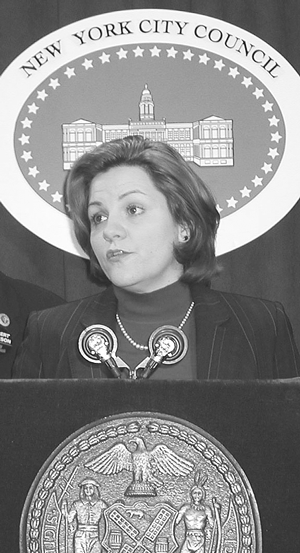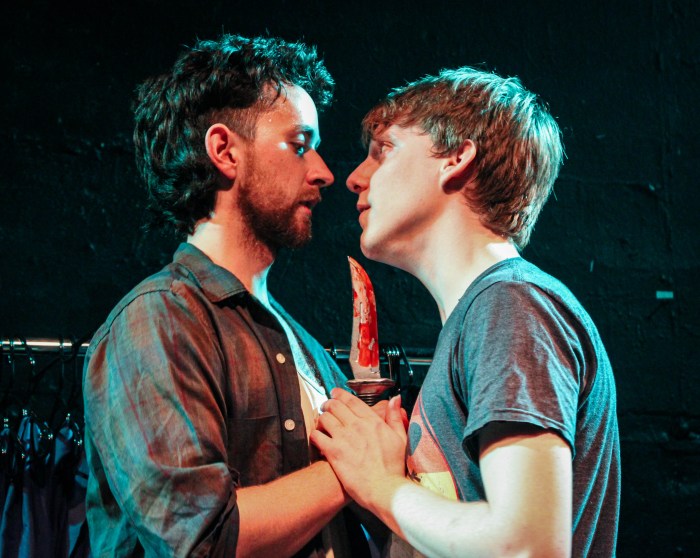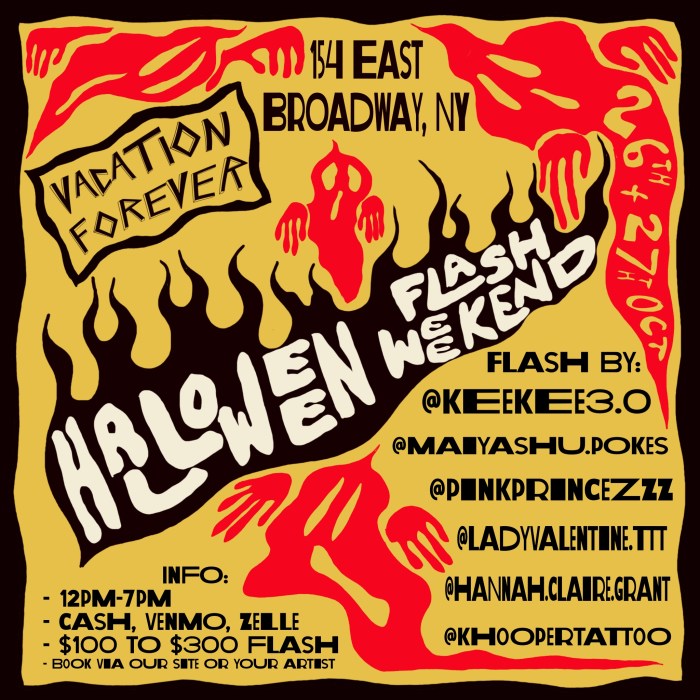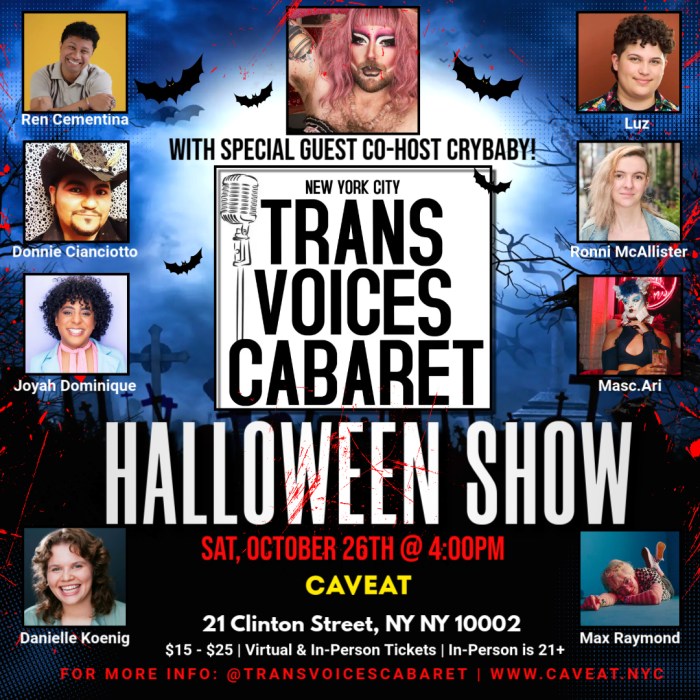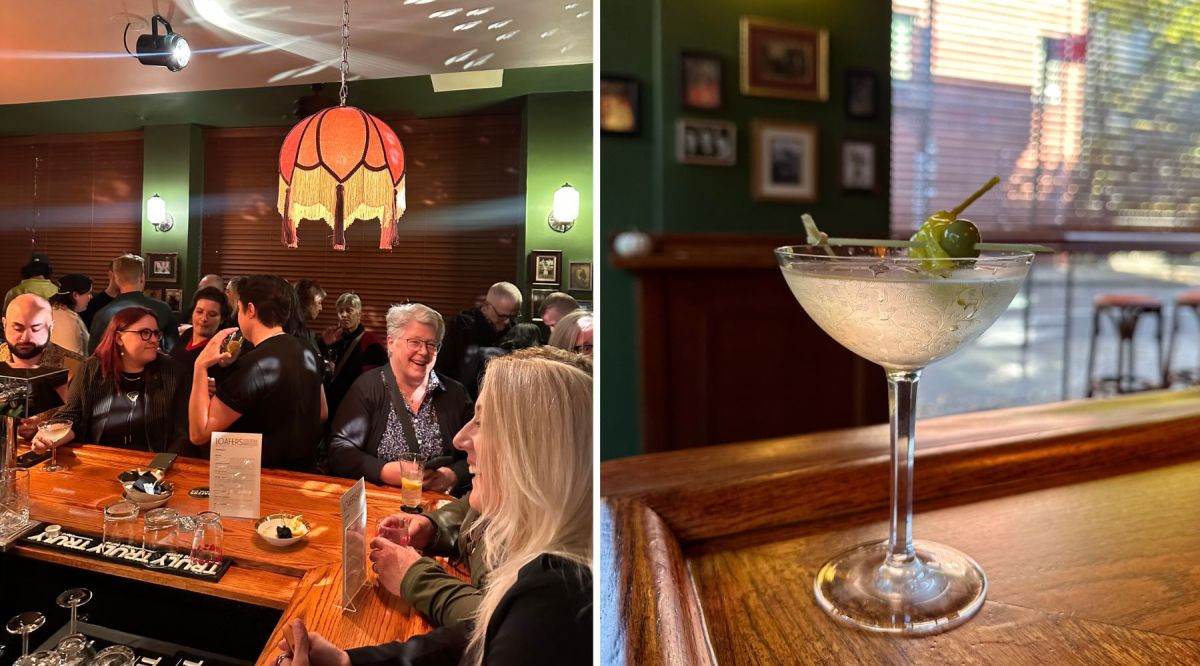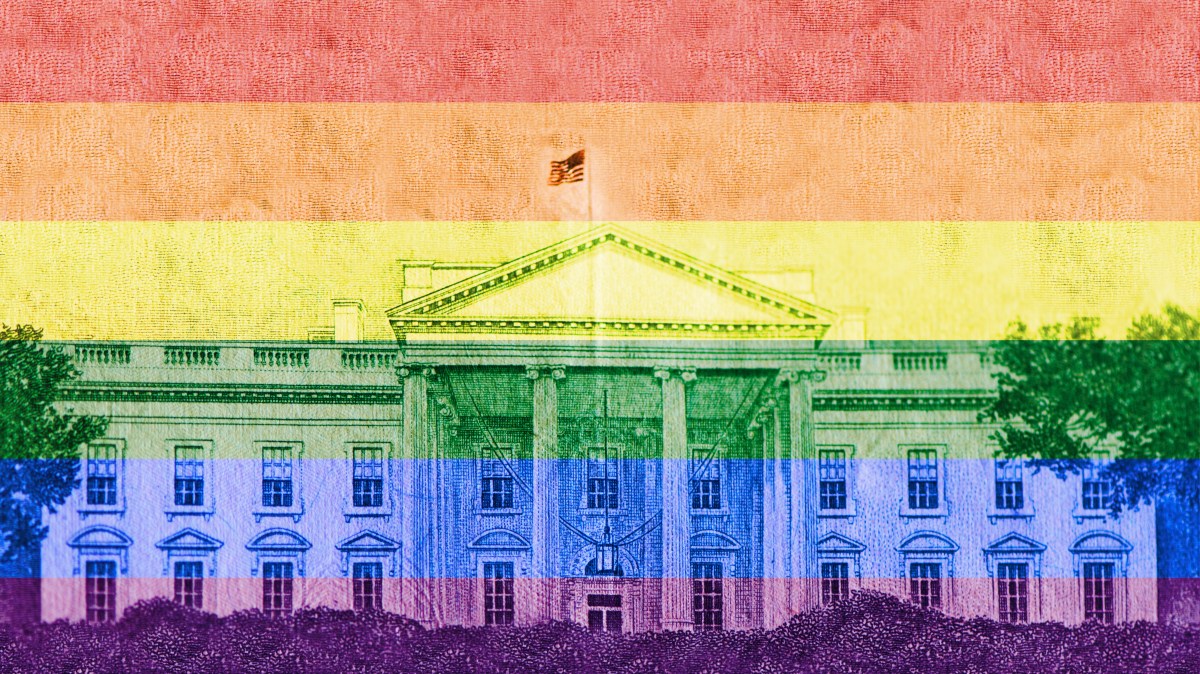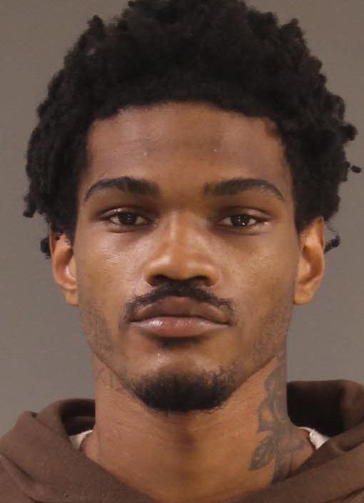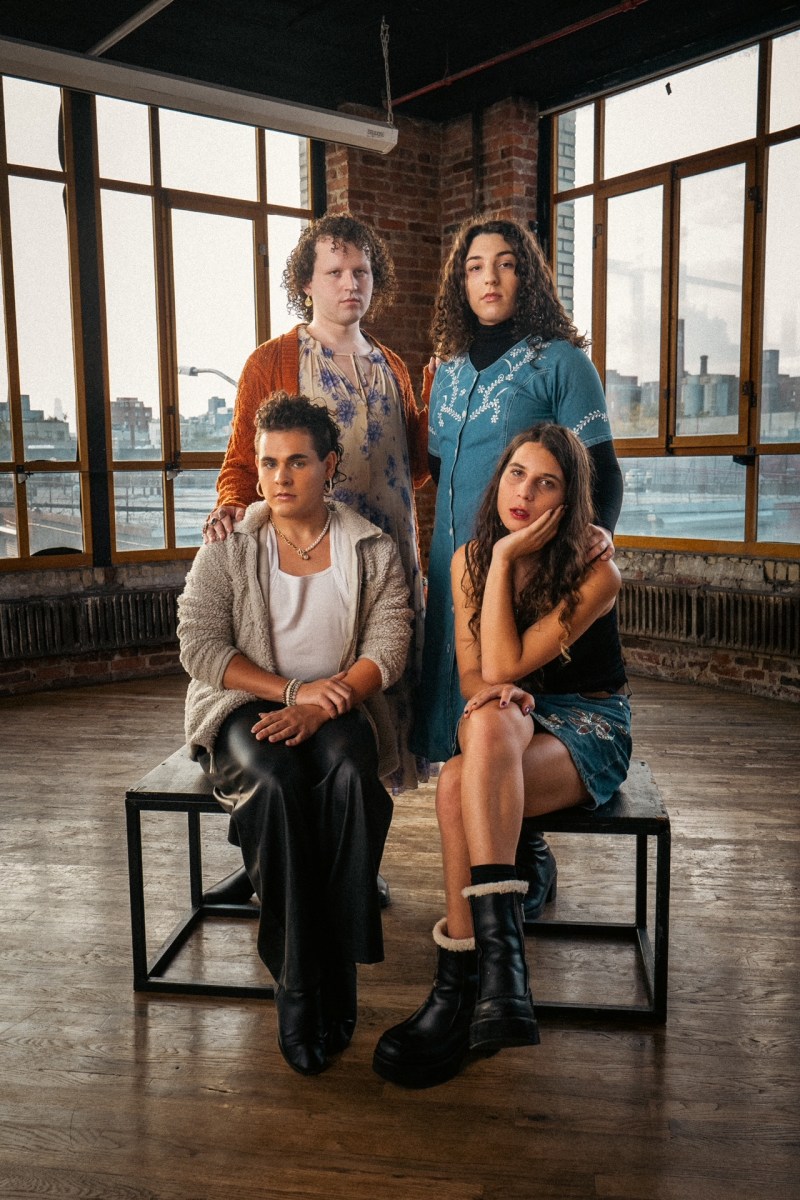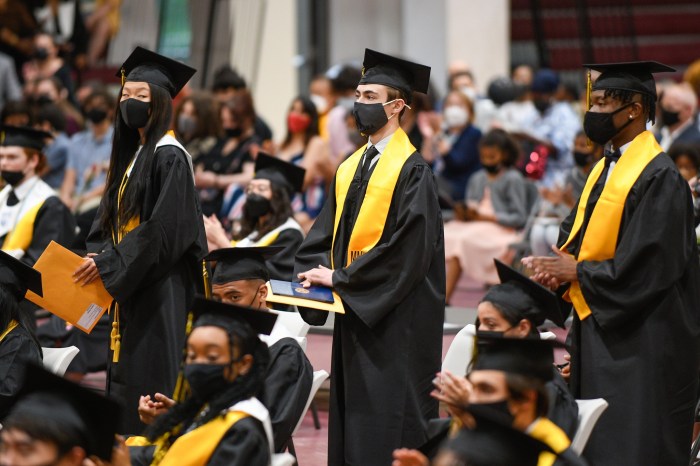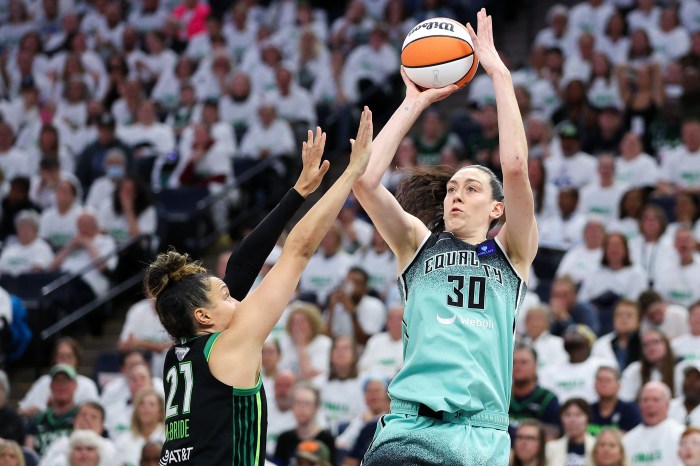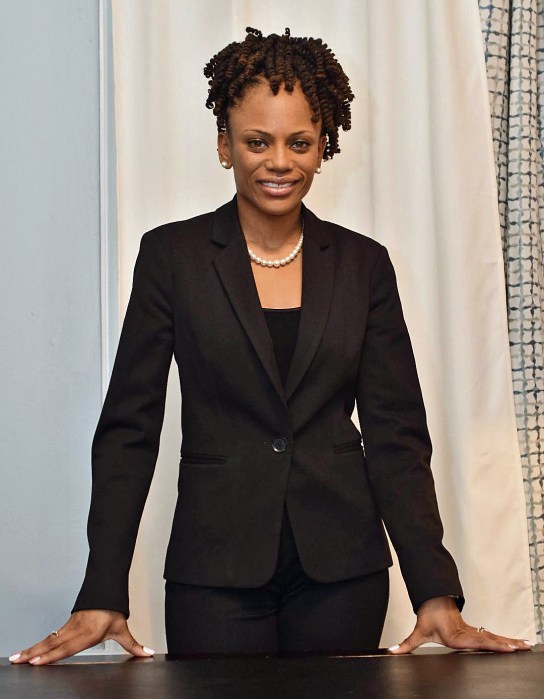Speaker Quinn Seeks Tighter Nightclub, Bar Controls
Facing criticism that her nightclub security proposals could violate the rights and privacy of gay club-goers, City Council Speaker Christine C. Quinn vigorously defended the requirement that nightclubs and bars that have city cabaret licenses install video cameras and ID readers.
“This is not an issue that is targeting any one community and it is not an issue about sexual orientation,” said Quinn, an out lesbian, at an August 15 press conference. “People who make it an issue about sexual orientation, I believe, are diminishing the important struggle that still exists for civil rights for LGBT New Yorkers and are also diminishing the severity of the public safety situation we have right now.”
According to published reports, the law, if enacted, would affect roughly 250 businesses. Many of these are in Chelsea, the neighborhood Quinn represents, and some of them serve a gay clientele. On August 9, The New York Times reported that the City Council hopes to eventually extend the requirements to all city bars.
The proposal follows some high profile crimes that were associated with city bars or nightclubs.
In February, 24-year-old Imette St. Guillen was murdered, allegedly by Darryl Littlejohn, a bouncer at The Falls, the Soho bar where the young woman was last seen drinking. In July, Jennifer Moore, 18, was killed, allegedly by Draymond Coleman, a drifter with convictions for assault and drug offenses, after a night of partying at the Guest House, a Manhattan nightclub. In May, Stephen Sakai, a bouncer at Opus 22 in Chelsea, allegedly killed one person and wounded three outside the club.
In addition to installing video cameras at entrances and exits, the city law would require bars and nightclubs to use readers that scan driver’s licenses and other forms of identification to catch fakes. Some readers capture an image of the identification. That effectively creates a list, which includes pictures, names, and addresses of everyone whose identification was checked by the machine.
John Blair, a supporter of the Quinn proposal and the executive director of Spirit, a Chelsea nightclub, said the police department had been urging club owners to use readers that retain the images.
“That’s what they want,” he said. “That’s what we were told it is for. They want to know who was in the club.”
Some gay activists and civil liberties groups are objecting to the proposal.
“I think it is reprehensible to either scan people and keep records of people who enter a facility or to photograph people who enter a facility,” said Allen Roskoff, president of the Jim Owles Liberal Democratic Club and a longtime gay activist.
Some patrons may be closeted, they may live in a state where they are not protected by anti-discrimination laws, or they may be in the military and the record created when they visit a gay club could harm them after they leave, Roskoff said.
“What happens when a crime is committed in that facility and a spouse starts getting phone calls?” Roskoff said. “I don’t like scanners that maintain records. What bothers me is a record being kept.”
William K. Dobbs, a gay civil libertarian, said the proposal was in keeping with government scrutiny of taxpayers that has been increasing since the attacks of September 11, 2001.
“The whole approach smacks of Big Brother,” Dobbs said. “The ugly argument here is that giving up liberty and adding more surveillance is going to make us safer. That is exactly the argument that Bush used to install the Patriot Act.”
Robert A. Perry, legislative director at the New York Civil Liberties Union, said the proposal implicated “fundamental privacy interests” and “inhibits a most basic right which is freedom of association.”
It also won’t work, Perry said.
“She spoke of this as a deterrent to crime, as protecting patrons,” he said. “There’s almost an infatuation with video cameras as a crime fighting tool. The fact is there is a pretty large body of evidence that demonstrates that cameras do not deter crime… The premise is really questionable.”
Quinn said these concerns can be addressed in the law.
“We will include provisions such as a time limit on how long information, images, whatever, can be retained,” she said. “We will require that that information can only be used for law enforcement endeavors, it can only be used by law enforcement to prevent crimes. We will stipulate in the law that if people use the image from the camera or the information from the ID reader for activities other than law enforcement that will, in and of itself, be a crime.”
Opponents were not reassured. It is the police using the information that may be the greatest concern.
“Specific instances of abuse should give us fair warning that we need to protect against abuse by police or private individuals,” Perry said.
In a recent court case, the police department sought and won an end to curbs on its ability to surveil New Yorkers. Since then the department has used that power to watch law-abiding groups, including at least one queer group. At the June 23 Trans Day of Action for Social and Economic Justice, a police detective videotaped the march. The event was legal and no arrests were made.
The proposal has immediate implications for one group. In 2004, the Miami Herald disclosed that the New York City police department had compiled dossiers on a number of hip hop artists. The dossiers were exposed after New York police gave copies to the Miami police.
Would using the lists created by the readers to determine who was associating with an artist at a club be a legitimate “law enforcement endeavor?”
“The purpose here… is to protect people,” Quinn said. “As we’re drafting the bill, which we are in the process of doing, that’s our goal… New Yorkers should remain confident that our goal here isn’t to invade people’s privacy. It’s to protect people when they are at or around these establishments.”
gaycitynews.com

